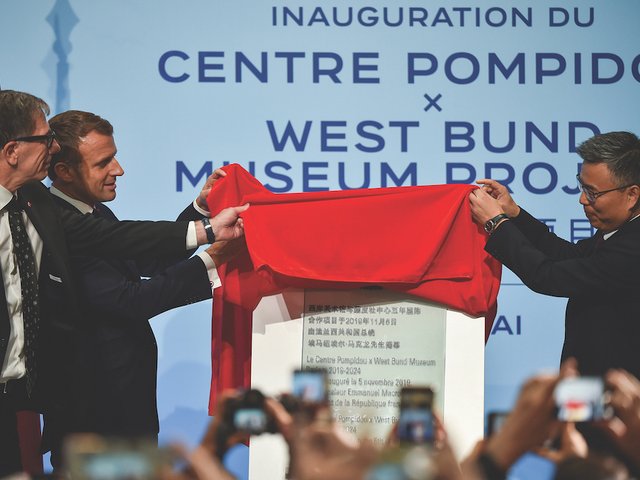Culture is high up on the agenda for Xi Jinping, the Chinese president. His state visit to the UK, from 20 to 23 October, is bound to prove controversial because of the country’s human rights record. But from the UK government’s perspective, this will be diplomatically downplayed in order to promote commercial opportunities. Against this background, all sides regard culture as a way of bringing the two nations closer together.
After lunch at Buckingham Palace on Tuesday (20 October), the Queen will show Xi a private display of items from the Royal Collection with a Chinese link. These will be laid out on tables in the grand setting of the Picture Gallery. Later that afternoon Xi will go across the road to Clarence House, home of Prince Charles. There he will see works by students from the Prince’s School of Traditional Arts, where painting, architecture and ceramics are taught.
On Wednesday (21 October) Xi will attend a conference on the creative industries at Lancaster House, organised by the UK Trade & Investment department. The focus will be on co-operation over film, television and entertainment, and new partnerships between UK and Chinese companies are expected to be announced. On Thursday (22 October) Xi will open a conference run by University College London and the Confucius Institute, a Chinese government body that promotes Chinese language and culture abroad.
The UK government is now actively promoting cultural ties and the Treasury announced special grants in September. These include £1.6m to the Tate for a show on British landscape painting in China, £1.3m to the British Library for exhibitions on literary treasures (including Shakespeare’s First Folio), £700,000 to the British Museum for the touring show A History of the World in 100 Objects in Beijing and Shanghai, and £300,000 to the Victoria and Albert Museum to develop a database of Chinese iconography.
But co-operation does not always run smoothly, and on 14 October a display of the Magna Carta copy from Hereford Cathedral was blocked at the last minute by Beijing’s Renmin University of China, presumably because of political sensitivities. The display had originally been timed to coincide with Xi’s imminent departure for the UK.
Another event that will be diplomatically shielded from Xi’s eyes is the Ai Weiwei exhibition at London’s Royal Academy of Arts (until 13 December), since many of the works relate to Ai’s imprisonment and subsequent house arrest. Had Ai’s passport not been returned to him in July, Xi would have been greeted with protests from UK arts figures calling for the artist to be allowed freedom of movement.


